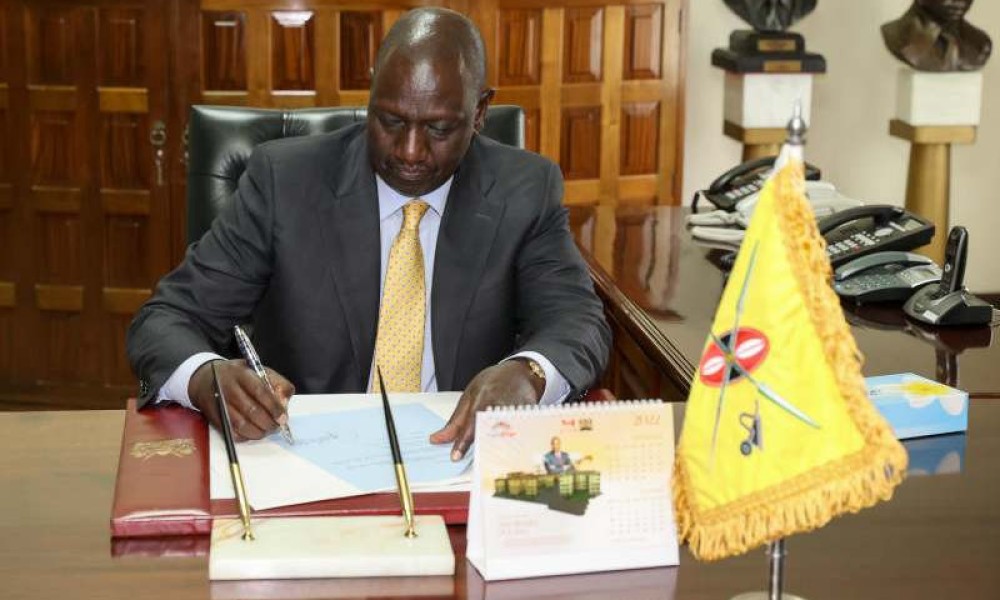
The Kenya Finance Bill 2025 carries a reckonable dark history of perception management attempts of illusions created by William Ruto’s government to avoid problems associated with last year’s budget season.
Town halls and interviews have been presented from the perspective of the government, whereas all social media is instructed in favor of the bill.
According to critics, the real contention remains the bill’s contents and the unwillingness of the government to engage on broader issues of accountability and trust.
From PR Crisis to PR Strategy
The Kenya Finance Bill 2025 follows a very difficult year for the government, when the Finance Bill 2024 triggered countrywide protests fueled by public grievances over proposed tax hikes. This generated at least 50 deaths and initiated a nationwide discourse over the government’s accountability and the equity of tax laws. Following the backlash, the president, Ruto, had no choice but to withdraw the bill and reconstitute the Cabinet.
The administration has thus been walking a tightrope of narrative management for the whole of this year. The government, on its part, has been keen to emphasize its commitment not to impose new taxes, thus painting the Kenya Finance Bill 2025 as one aimed at expanding the tax base instead of burdening it further.
And yet, doubts remain. An improved public relations strategy may still not be enough to surmount the deeper mistrust that arose in the aftermath of last year.
Policy Changes or Window Dressing?
On paper, the Kenya Finance Bill 2025 will not impose any new taxes but rather looks at widening the tax base by shifting VAT for certain goods from zero-rated to VAT-exempt. Shifting items back to VAT-exempt could be a pricing measure on essential items such as medicines, motorbikes, and smartphones. Such provisions raise strong concerns about the cost of living in the country, especially with respect to disenfranchising vulnerable populations.
Also, the bill proposes KRA to access business data without a court order, thus raising privacy concerns and concerns over the possible abuse of tax authorities. There are critics who go on to claim that these supposed measures to curb tax loopholes will only place further restrictions on businesses and individuals.
Deep-Seated Mistrust
While the technicalities of the Kenya Finance Bill 2025 are yet to be decided on in full, a larger question comes forward: the issue of public mistrust of the government. Thousands of Kenyans are still mourning the aftermath of the protests of 2024 and demanding accountability for the deaths and violence that occurred. The Government’s seeming unwillingness to adequately address these issues has since remained a hegemonic barrier to resurfacing the question of re-engaging the public on policy matters.
There is a strong feeling, notwithstanding government claims to the contrary, that the political elite have not addressed the underlying causes of the unrest: unemployment, corruption, and economic inequality.
Alternative Solutions Largely Ignored
While the government is bent on broadening the tax base, innumerable economists have deemed the real solution to be better tax enforcement, closing corporate tax loopholes, and tackling systemic corruption. These critics say this revenue would instead be generated fairly instead of adding to the general burden of the common people.
Even bigger cries for overhaul of the economic policies and fiscal framework of the country occur to tackle the fundamental issues of inequality and unemployment. Without tackling these structural issues, they argue that any fiscal reform might provide at best a temporary relief.
A Communications Campaign Can’t Fix Everything
Responding to last year’s backlash, the government has pivoted toward a strategic communications approach. Yet whether that will overcome a deficit of trust built over years of perceived broken promises and economic hardship remains to be seen.
During the Kenya Finance Bill 2025 from public participation to parliamentary debate it will be tested on both the technicalities of the bill and on larger tests of credibility. In an environment as highly politicized as Kenya, managing public perception will probably have equal influence as what the bill declares.
Follow us on WhatsApp, Telegram, Twitter, and Facebook, or subscribe to our weekly newsletter to ensure you don’t miss out on any future updates. Send tips to editorial@techtrendsmedia.co.ke



